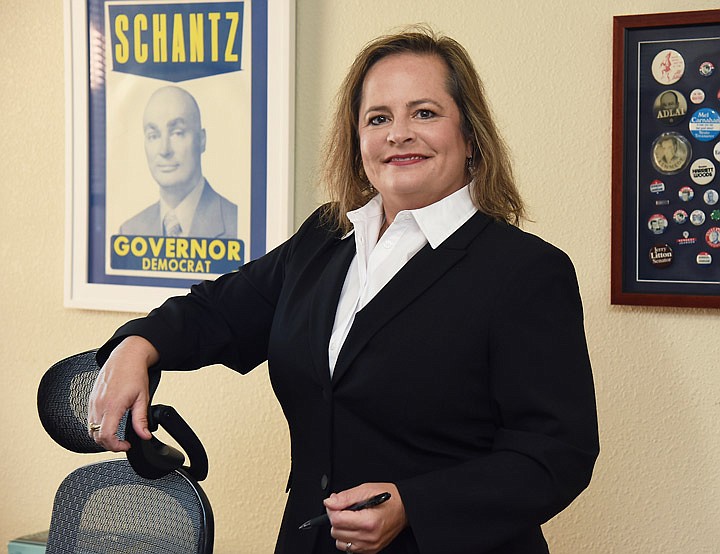If elected as the next Cole County associate circuit judge, attorney Gaylin Carver said she would strive to make sure those who leave her court, whether they won or lost, feel she considered their case important, listened to both sides and was fair to both parties.
Carver was unopposed in the Democratic primary in August. She will face Jefferson City Municipal Judge Cotton Walker, who won the Republican primary in August, in the Nov. 6 general election. Current Associate Circuit Judge Tom Sodergren is not running for re-election.
Carver graduated from law school at St. Louis University in 2001 and served as a clerk for Supreme Court Judge Mike Wolfe before working as an assistant prosecutor for then-Cole County Prosecutor Richard Callahan. She has been a partner at Carver & Michael law firm in Jefferson City since 2009.
Carver hasn't been a lawyer her entire professional career. She was a high school history teacher in the Jefferson City Public Schools district and later taught abroad at an American school in Cairo, Egypt, before returning to the United States and getting her law degree.
"This, I believe, would help me as a judge because it allowed me to look at life from a non-legal viewpoint," she said. "I think it helps me understand or relate better to people. I think I was successful in law school because I'd been out in the real world."
During her time as a lawyer, Carver said, she has had a wide range of experiences, from jury trials to traffic court, as a prosecutor and in private practice.
Most of her work in private practice has dealt with family law, which would include matters such as divorces, adoptions and property disputes. Carver said many of these types of cases come before the associate circuit judge.
"I could do whatever kind of cases the circuit decides best fit my expertise," she said.
As she talks with voters, Carver said, often they talk about case backload and what effects it could have on the judicial system.
"We have some people, on misdemeanor criminal cases, waiting six to eight months before they're disposed of," she said. "Some felonies have taken up to three years to get through the courts. I don't think you can put your finger on any one cause of that, and a certain amount of delay is natural; but when you have people who are sitting in jail for six months waiting for a misdemeanor case to be heard, there's a problem."
Carver said she would work with the other judges, as well as law enforcement, the public defenders' office, prosecutors and bail bondsmen to deal with the problem.
"It's not just one problem, though," Carver said. "If there is something to blame, it's the system. So as a judge, I would work with others to come up with a solution."
In 2021, a second associate circuit judge is scheduled to be in place thanks to legislation passed and signed this past legislative session. Carver said that should help with caseload issues.
"Even if, say, just half of the cases you're dealing with are traffic tickets, that's still a big docket to be dealing with for one judge on a regular basis," Carver said.
Carver also believes Cole County's alternative courts, such as Drug Court, DWI Court and Veterans Court, can be pieces to solving the puzzle of caseload issues and helping to stop recidivism. She said she would hope to make these stronger.
"I've been involved in alternative courts both as a prosecutor and a private lawyer, and I've seen amazing results," she said. "I had a client who was one of the first to go through the Veterans Court, and it was way beyond my expectations for him. The victim was so angry and bitter at her client that she reached out to the prosecutor dealing with the case and asked if her client could meet one on one with the victim. They sat down and the victim was able to ask questions, and my client tried to answer them. My client apologized to the victim and tried to help him locate items he had stolen. They ended up exchanging emails, and it convinced me there is something to restorative justice."

